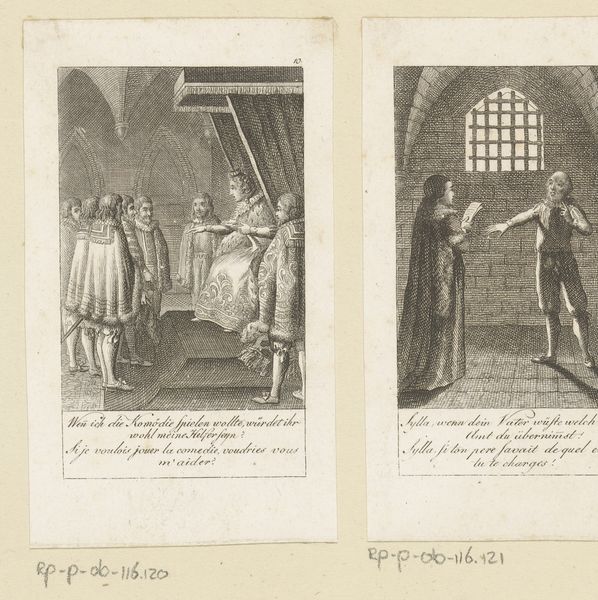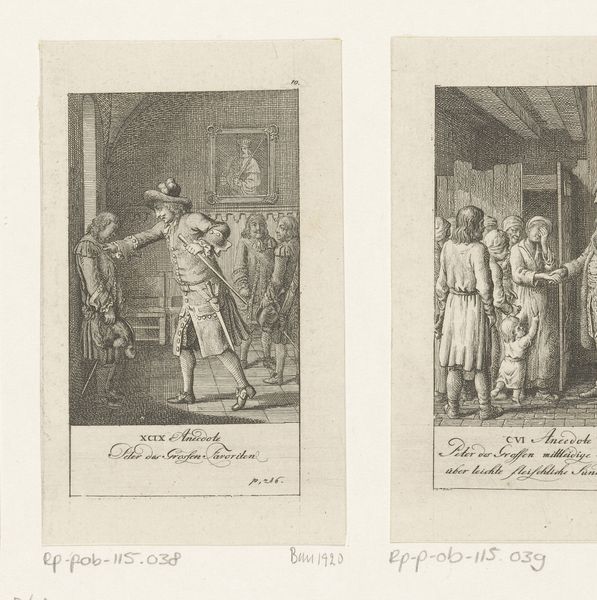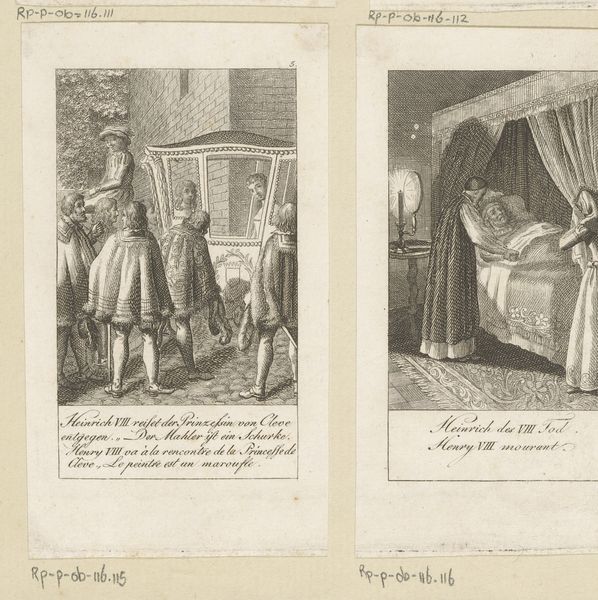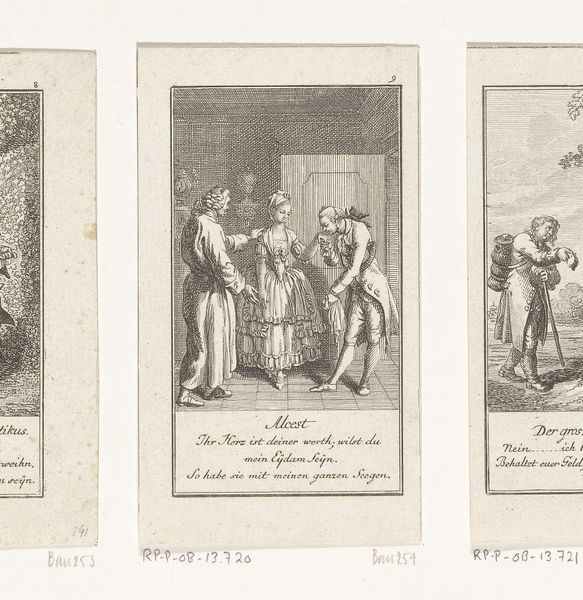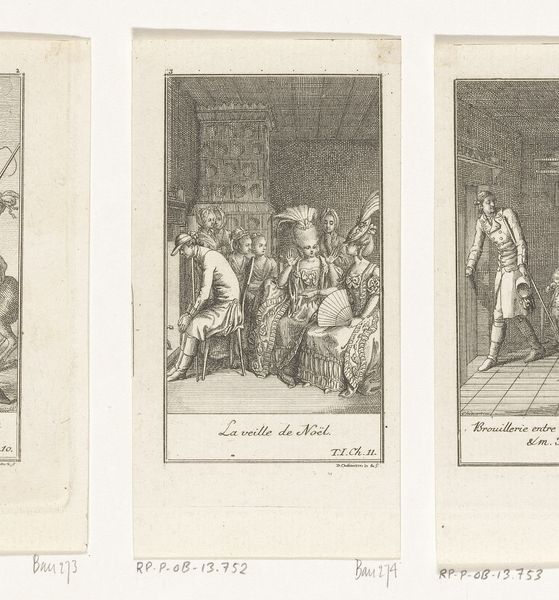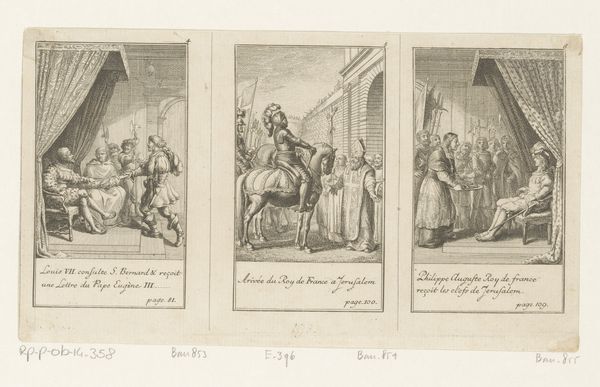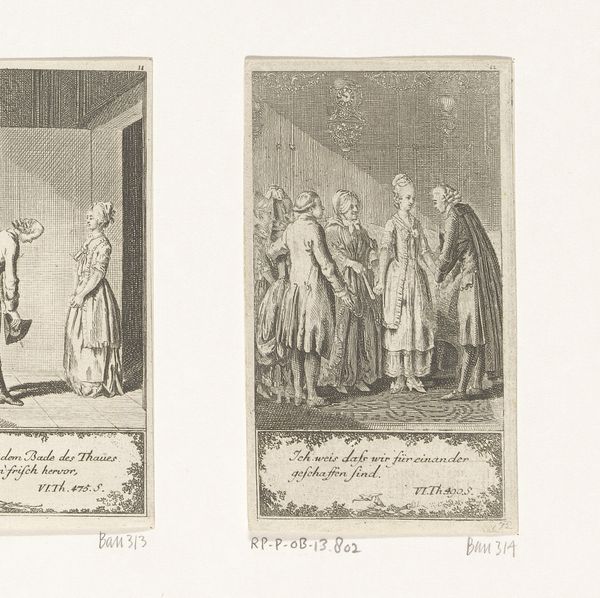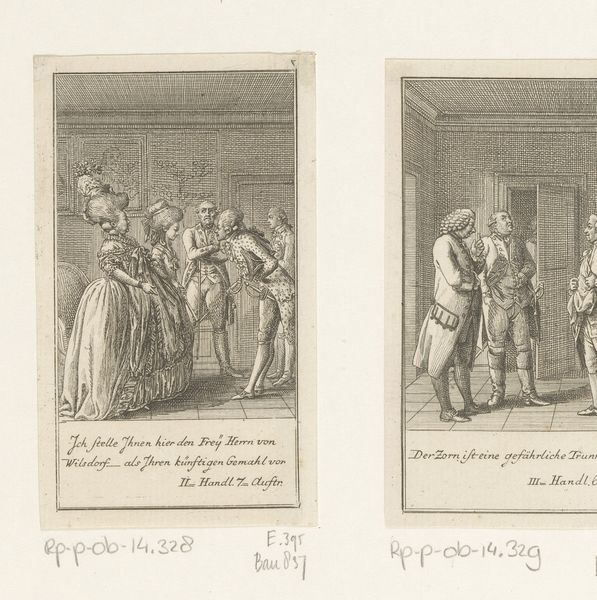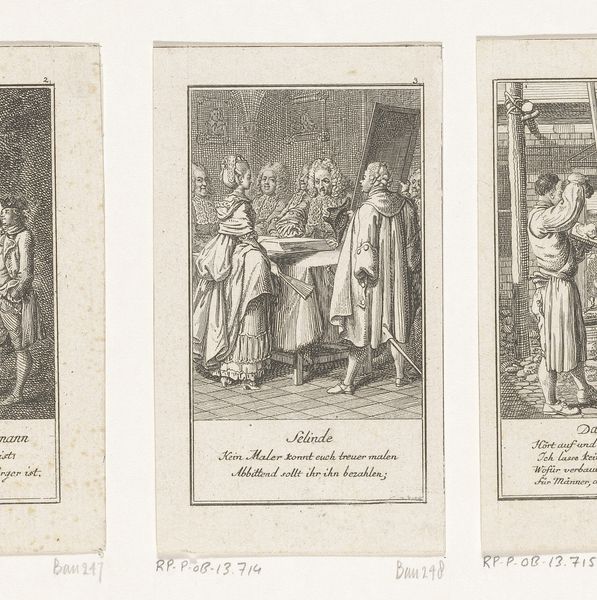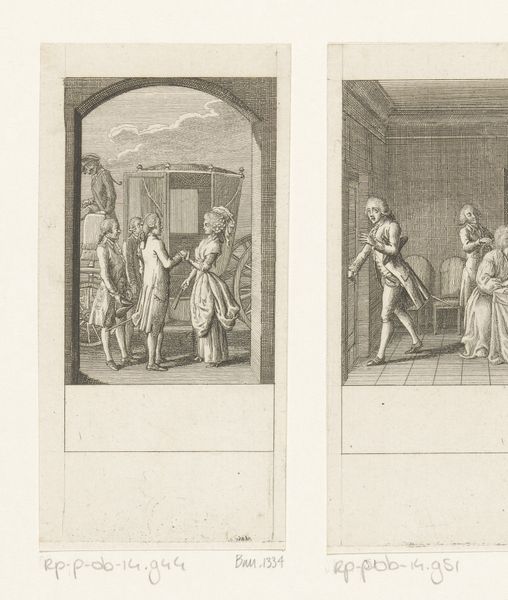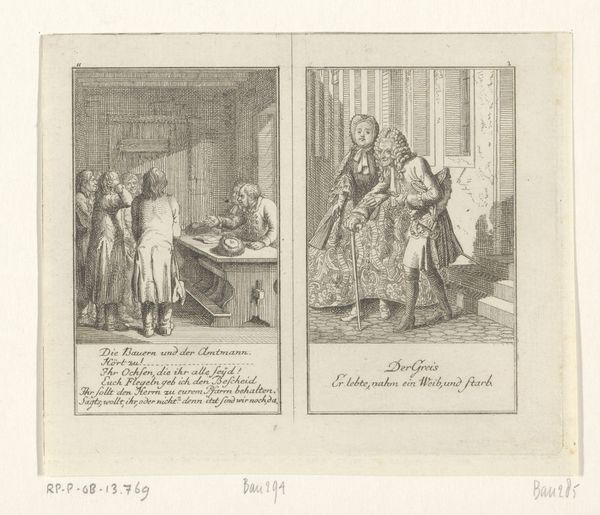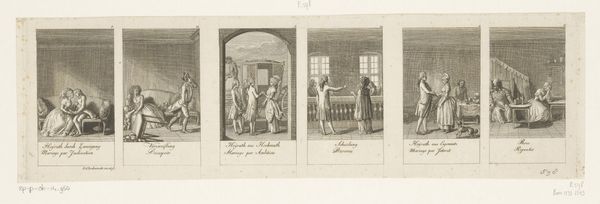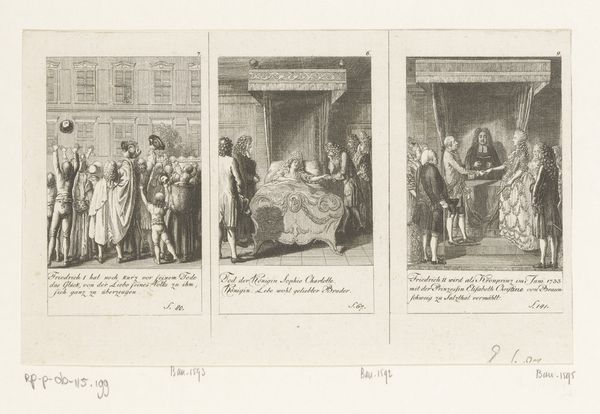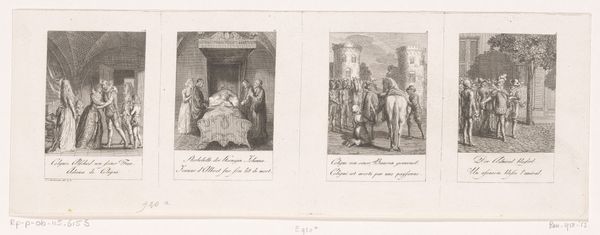
Voorstelling uit de geschiedenis van de Nederlandse stadhouders 1796
0:00
0:00
christiangottliebgeyser
Rijksmuseum
print, engraving
#
portrait
#
comic strip sketch
#
narrative-art
# print
#
figuration
#
line
#
history-painting
#
engraving
Dimensions: height 106 mm, width 61 mm
Copyright: Rijks Museum: Open Domain
Curator: Look at this intriguing print, titled "Voorstelling uit de geschiedenis van de Nederlandse stadhouders" by Christian Gottlieb Geyser, created in 1796. It's housed right here at the Rijksmuseum. Editor: Immediately, I'm struck by the distinct separation of scenes; they almost feel like panels in a comic strip. The style has a crisp, linear quality that reminds me of early political cartoons. What material was used for this print? Curator: It’s an engraving, which would have allowed for relatively easy reproduction and wide dissemination. Consider the socioeconomic implications – the accessibility of prints like this. The image itself becomes a commodity. Editor: Exactly! It’s fascinating how readily accessible such visual narratives were. But tell me, what historical moments are being depicted here? I sense elements of theatrics and political intrigue in these highly posed figures. Curator: We see scenes referencing events related to the Dutch Stadtholders, focusing perhaps on moments of crisis or negotiation. It would've circulated among people deeply invested in the political life. These visual narratives are powerful. The artist employs a detailed figuration and each panel includes captions that speak to these different encounters. Editor: I agree. It's remarkable how effectively these scenes compress complex political narratives into such concise visual form. But more than just chronicling events, the theatrical gestures and staging speak to the performance of power. The elite commissioning and consuming work like this sought validation, maybe? Curator: Definitely, it all touches upon social class. I mean, it gives a platform and visibility to that story but ultimately is accessible to those within specific social stratifications. The very act of commissioning a work of art, specifically a printed engraving for wider circulation, was itself a social performance. Editor: This analysis reframes the work as more than just illustration of the past—but also an act of communicating status within a societal framework of resources, tools and artistic networks. Thank you, that context shifts everything! Curator: My pleasure! It is works like this that keep me going and engaged.
Comments
No comments
Be the first to comment and join the conversation on the ultimate creative platform.
